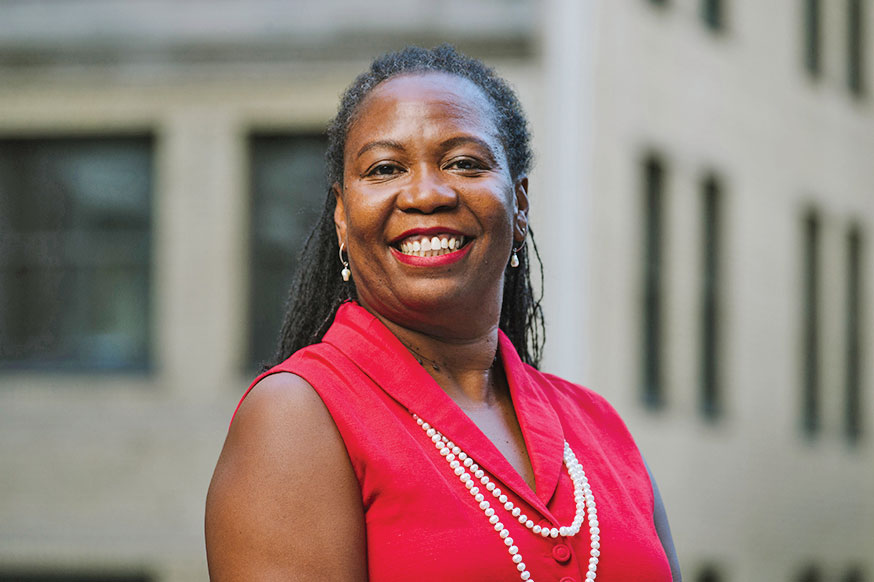
Affordable-housing advocate Chrystal Kornegay, MCP ’97, this year became the executive director of MassHousing, an independent, quasi-public lending agency that finances housing in Massachusetts. She is the first woman and first person of color to lead the agency, and those two firsts brought her a lot of attention. “It’s fun. I’m honored,” she says, “but I’m not letting it go to my head.”
Kornegay knows firsthand the benefits offered by MassHousing, which has provided over $22 billion in financing for low- and moderate-income state residents since its inception in 1966. She was able to buy her first home, in Boston’s Mission Hill, with a MassHousing mortgage.
“Not just affordable housing but housing, period, is one of the defining issues of our time,” says Kornegay, who grew up in a modest neighborhood in Brooklyn. She attributes the huge rise in income inequality in part to the decreasing rate of homeownership. “In a lot of ways, urban families ‘do wealth’ through their homes,” she says. “But now we have people that can’t actually buy a house.”
At MassHousing she has started her new position in a familiar way: “I go out and talk to people. It was how I was taught to do the work at that technology institute I went to,” she jokes.
Kornegay came to MIT as a single mother on a full scholarship after earning a bachelor’s degree from Hunter College. Her seven-year-old son, Elijah, often joined her for class projects and field research. She remembers, “One of my fondest memories is when we were doing problem sets with my study group. And you know how it is, you’re tired and you’re being silly … and I remember Elijah saying, ‘You guys need to focus on your homework! We have got to get this problem set done.’”
She most recently served as the undersecretary for housing and community development for Massachusetts. In that position, she led efforts to move nearly all of the state’s homeless families living in motels into more permanent housing. Before that, she led Urban Edge, a Roxbury-based community development organization.
She believes the MIT Department of Urban Studies and Planning’s preference for practice over theory has reinforced her own approach to community development. “Theory in and of itself doesn’t change people’s lives,” says Kornegay. “If you are going to be in this business, you need to change people’s lives in a way that’s meaningful to them, not to you.”
Keep Reading
Most Popular
Large language models can do jaw-dropping things. But nobody knows exactly why.
And that's a problem. Figuring it out is one of the biggest scientific puzzles of our time and a crucial step towards controlling more powerful future models.
How scientists traced a mysterious covid case back to six toilets
When wastewater surveillance turns into a hunt for a single infected individual, the ethics get tricky.
The problem with plug-in hybrids? Their drivers.
Plug-in hybrids are often sold as a transition to EVs, but new data from Europe shows we’re still underestimating the emissions they produce.
Google DeepMind’s new generative model makes Super Mario–like games from scratch
Genie learns how to control games by watching hours and hours of video. It could help train next-gen robots too.
Stay connected
Get the latest updates from
MIT Technology Review
Discover special offers, top stories, upcoming events, and more.